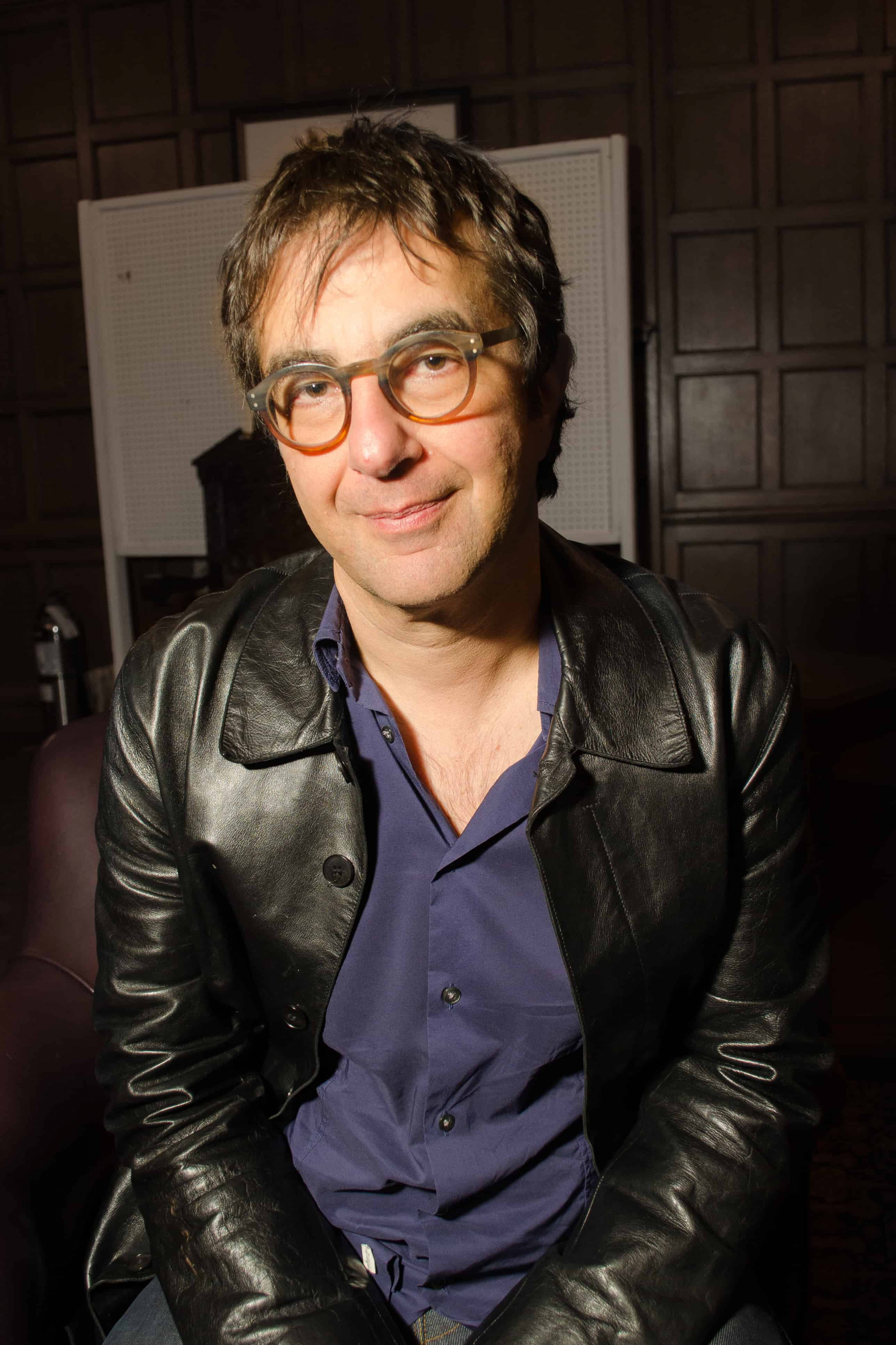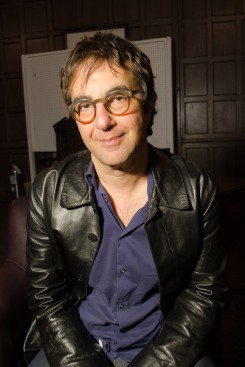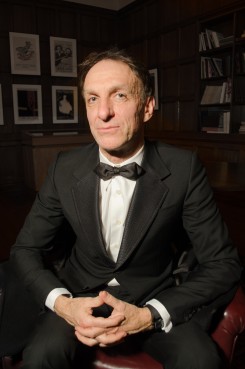On Monday March 25, I met filmmaker Atom Egoyan and composer Mychael Danna in the Trinity College JCR. A U of T alum, Egoyan is a renowned film director, whose work includes The Sweet Hereafter (1997), Ararat (2002), and Chloe (2009). Danna, also a U of T alum, and provided the score for most of Egoyan’s films and many others. Earlier in the month, he won an Oscar for his work on Life of Pi.
I interviewed Egoyan and Danna for 20 minutes before they spoke to a larger groupof students. To get things started, I congratulated Danna on his recent success at the Oscars and asked him how it felt being there.
“A bore,” he replied.
“A bore?” I asked.
He laughed and said, “Yeah, that’s what I meant.”
While Danna may have found the Oscar ceremony less than thrilling, his long-standing collaborative efforts with Egoyan have been anything but dull. Egoyan and Danna have sustained a working relationship for over 20 years. They met while working on one of Egoyan’s first feature films, Family Viewing (1988). According to Egoyan, this first collaboration was an exciting experience, not only because it served the film well, but also because it contributed to his own education as a director.
“The experience itself was … quite amazing because the film definitely needed [music],” he said. “It was an essential part of the construction of that film, and Mychael not only rose to the challenge, he just taught me so much of what music does in a film.”
Danna expressed a similar enthusiasm for Family Viewing, a project that gave him the opportunity to explore aspects of film scoring that he still employs today.
“The themes from that score are themes that we continue working with to this day — non-western music, minimalism, kind of subtle interweaving within the dramatic action. The approach and the sensibility hasn’t really deviated from the path we began together.”
Danna went on to say that his initial work with Egoyan taught him how to get to the “essence” of the film’s story, and that he has transferred this experience to his work with other directors.
A pattern emerged throughout the conversation: whenever Egoyan and Danna spoke about their collaborative efforts, each one would diminish the importance of his own role.
“It would be presumptive to say that I ‘direct’ Mychael,” Egoyan claimed. He insisted that because the music helps tell the film’s story, the process is more of a “co-authorship.” Danna in turn explained that his aim is to channel Egoyan’s vision and, ultimately, to help create the film as a whole.
Egoyan also made frequent reference to Danna’s work outside his own films. He spoke about the tremendous pride that he and his crew felt while watching Danna’s Oscar acceptance speech from a film set in Sudbury, a pride that was all the more intense because their current project will eventually be scored by Danna.
I brought up a feature on the DVD for The Sweet Hereafter, which allows viewers to watch the film without any sound except for the score, and how this seemed like a perfect example of the way music acts as a language for the image. Egoyan lamented the discontinuation of this option in DVDs. “They don’t do it anymore!” he exclaimed. “It’s an amazing feature, especially for that film.”
Somewhat surprisingly, Danna had a different opinion about whether or not the score of a film should ever be removed from its context. He explained that a lot of film orchestras, especially when it comes to bigger features like Life of Pi, want to perform their scores separately from the film. In his mind, however, this method of scoring films is somewhat inauthentic. With the exception of films like Egoyan’s Ararat, which incorporated traditional Armenian folk music, Danna believes that scores should remain strictly part of the films they were created for.
The conversation turned to the topic of using Toronto as a landscape for film, and Egoyan explained his rather pragmatic reasons for deciding to use Toronto as a backdrop to his projects. Toronto is where Egoyan makes films because it is home, and because it is not Los Angeles, a place where everyone is passionate about film. This characteristic of L.A., he explained, makes the city a distracting place for a director if he or she is not working on a specific project.
“I mean, that’s the hardest part of what I do,” he says. “There are a lot of people in L.A. saying they’re making films, but they’re not really making films — they’re trying to get them made. You can get sucked up in that, and you can spend and waste a lot of time there.”
Danna was somewhat more romantic about his attachment to Toronto, which he attributes to his preference for the Canadian sensibility. He claims that in the United States, everyone in the film business is consistently convinced that their approach is the right one, and he praised Canadians’ comparative lack of certainty.
“I find it stimulating,” he explained. “I find people who have a sense of doubt, of unsureness about themselves and about everything around them. I find that very comfortable.”




